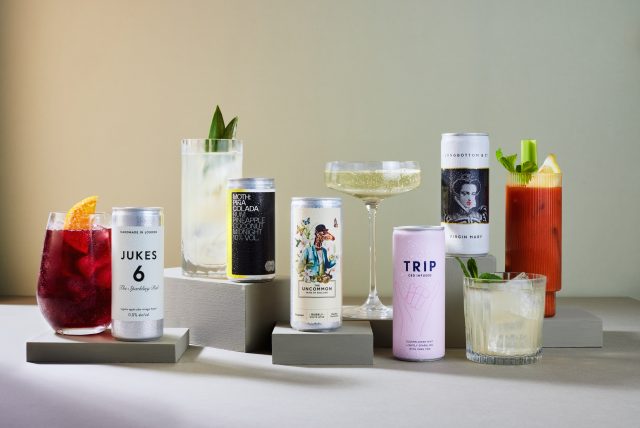This website uses cookies so that we can provide you with the best user experience possible. Cookie information is stored in your browser and performs functions such as recognising you when you return to our website and helping our team to understand which sections of the website you find most interesting and useful.
‘Canifesto’ open letter urges on-trade to adopt cans
Five UK-based premium RTD brands have united in an open letter calling on the on-trade to adopt cans, despite “plenty of pushback” from bars and restaurants, Henry Connell, co-founder of participating brand The Uncommon, told db.

RTD brands The Uncommon, Moth Drinks, Longbottom & Co, Jukes Cordialities and Trip have joined forces to create ‘The Canifesto’. The open letter includes facts on the positive impact of adopting aluminium cans and provides comments from hospitality companies including Berners Tavern, Liberty Wines and British Airways.
Connell, who co-founded The Uncommon with Alex Thraves in 2017, described the collective as “five premium brands that have had success in the off-trade and travel, and figured the on-trade needed to follow suit”.
The letter argues that cans offer the perfect single serve while “reducing waste, saving money, time and space”. It urges venues, particularly bars and restaurants, to consider the sustainability credentials of canned products.
“I think there’s a misconception that cans are inferior to other formats,” Connell told db. He described the on-trade as a “huge opportunity” for brands like The Uncommon, but was keen to stress that the benefits work both ways. “We solve a sustainability problem, we solve a time problem, and we solve a quality issue,” he said.
Statistics cited in the letter highlight the benefits of using aluminium over glass, arguing that the former is more easily and endlessly recycled, with 75% of the aluminium produced still in circulation today. Cans are also lighter to transport, and require less additional material to protect them during transit.
Single use formats also allow less liquid to be wasted in comparison to glass, Connell argued. “In wine especially, a lot of stuff is thrown away at the end of service. I think there’s a liquid waste issue as well as a packaging waste issue.”
The five RTD brands argue in their open letter that using single format cans allows for consistent quality at speed without having to train staff. But Connell said that the brands have had “plenty of pushback” from bars and restaurants in particular.
“In travel and outdoor events we solve a very immediate, obvious problem,” he said, but in bars and restaurants — venues he described as “the highest hanging fruit” — RTD brands have struggled.
Wine in particular is a “hugely traditional” category, but thanks to the rise of premium canned craft beer, Connell can see the quality message changing. “The next step is to have some conversations with sommeliers or bar and pub owners and really educate them on the benefits of having a canned product,” he said. “I can understand why they’d be resistance because you’re changing ordering systems, you’re changing the way everything works, but we’re not here to replace the bottle forever. There are certain circumstances, like high turnover bars, or bars with outdoor spaces, where this just makes sense.”

